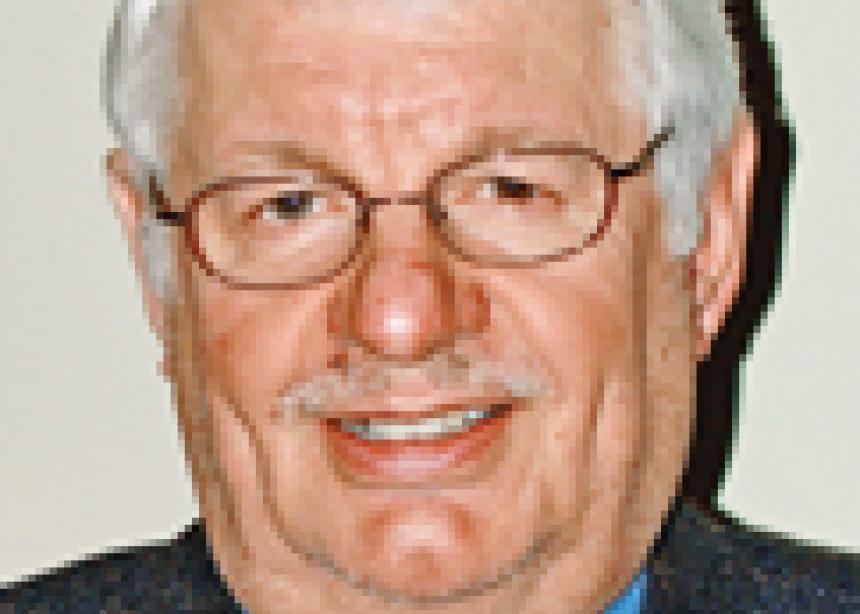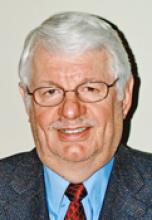To my family,
Since our Saskatchewan correspondent wanted to write about caring for seniors in the church (p. 4), I wanted to share some personal thoughts triggered by her investigation. I hope you don’t mind my getting a little more “philosophical” than usual.
I must confess to becoming a little weary of society nearly always framing this issue as some kind of social problem, as if older folks dying off sooner would make the world a happier, more productive and vibrant place. You might think, since your mother and I are in this category, we might be a little too sensitive on the matter, no?
Okay, I know the statistics. Canada is aging faster than ever before. Today, people aged 65 and over make up some 13 percent of the Canadian population. By 2031, there will be approximately 9 million seniors, and they will account for 25 percent of the total population.
In Parliament in the past two weeks, the opposition has taken the prime minister to task for using the bully pulpit in Davos, Switzerland to warn of future cuts to Old Age Security benefits. Admittedly, it was a bit cagey to sound this surprise warning thousands of miles from home and reversing something he said he wouldn’t do when he started out as a career politician in Alberta.
But it goes beyond politics. It shows how sensitive this issue is and how, in a world of seesaw economics, the senior population can become the focal point of multiple frustrations and national anxieties. While this might sound a little paranoid, hear me out, please.
Count your blessings. Right now we are not a burden to you, or to society. You know me—too stubborn to retire. I’m not alone in this. Statistics also show that in 2001 more than 300,000 Canadians 65 or older were in the labour force. After a lifetime of journalism and publishing, we came to Canada where I am running a denominational magazine called Canadian Mennonite. It’s an exhilarating experience, learning a new national and church culture.
That means we aren’t meddling and hovering. We taught you both, dear daughters, to be self-sufficient and self-reliant. You have passed that on to your children. While we miss having regular Sunday dinners and playing croquet and volleyball in the backyard, you know that even though the miles separate us, our love is strong, our prayers frequent. Facebook and Skype are our handy daily tools of communication. And we share stories of long-distance relationships with our peers, many of whom carbon copy our situation.
And don’t worry about our health, even though we are cancer survivors. I know you get tired of us quoting Dr. Andrew Weil, who with his pioneering work in integrative medicine has been called by the New York Times, “America’s best-known doctor.” He has helped us to reframe our health as “a dynamic condition of wholeness and balance that allows us to move through life and not succumb to malfunctions of our own physiology or suffer harm from all the damaging influences we encounter.”
Even though your mother and grandmother has been trained in good nutrition, she and I are seeing more and more how important diet, exercise and an “attitude of gratitude” are to our health and well-being. No, we aren’t vegetarians, but we have cut out the sugar and fat, increased the intake of fresh vegetables and fruit and downsized the meat portions on our plates. Nuts and berries are our snacks, few and far between.
Thanks to a new “mindfulness” preached by Dr. Weil for good mental health, we have become more aware of our connection to nature, the inspiration of simple things like fresh flowers, listening to good music, creating moments and spaces for silence and contemplation, walks in the park, a new appreciation for art and beauty.
In our faith community, we see forgiveness (one of the gifts of the Spirit) as a way of letting go. We seek out people who like to laugh and spend more time with persons who are optimistic, positive and happy and less time with those who tend to be pessimistic, anxious, or depressed. As Dr. Weil says, “emotions are contagious.”
Now, if all of this adds up to being a “social problem,” let us know. We hope you can feel this good at our age!
—Love, Dad/Papa



Add new comment
Canadian Mennonite invites comments and encourages constructive discussion about our content. Actual full names (first and last) are required. Comments are moderated and may be edited. They will not appear online until approved and will be posted during business hours. Some comments may be reproduced in print.